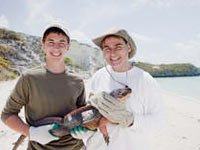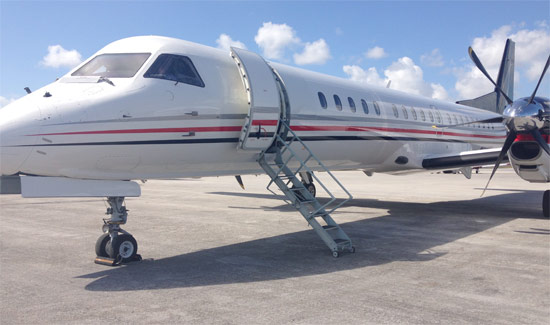
LA GRANGE — Ten minutes was a long time to wait for a determined iguana to unclench its jaws locked on the thumb of a La Grange man volunteering in the Bahamas.
“He just had my glove,” said Michael Delfini, an executive with the Shedd Aquarium, who tagged iguanas for a research project in April aside from his normal duties in Chicago.
Delfini and his 16-year-old son, Paolo, were among the hearty crew who waded out to work on the remote Exuma Islands of the Bahamas during the day and returned to sleep aboard a research vessel, the Coral Reef II. The 10-day research expedition was sponsored by the Shedd in cooperation with the Bahamas National Trust, which manages the country’s national parks.
Research included measuring an animal’s size, checking for ticks on the skin, taking blood and fecal samples and inserting something similar to a microchip. The project was aimed at comparing data from iguanas on islands frequented by tourists and animals on remote islands, as well as lizards previously captured and tagged to monitor their health.
“It was sad. The tourists would throw grapes in the sand and the iguanas would eat them covered with the sand, which tears up their insides,” Paolo Delfini said. “One of the hardest things of my life was to watch that. We weren’t allowed to say anything.”
While there are no laws against feeding iguanas with nonnative foods, Michael Delfini said the goal of the research effort is to work with tour boat operators and change visitors’ behavior.
“If they would put the grapes on a stick, it would be a little healthier,” he said. “At least they’re not eating sand.”
Paolo Delfini said iguanas fed by tourists were tame, different from the animals on remote islands.
Photo: Paolo Delfini, 16, holds an iguana with his dad, Michael Delfini of La Grange, during a research trip in April in the Bahamas. | Photo courtesy of Shedd Aquarium



